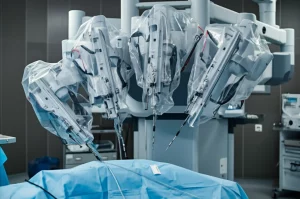The Surprising Link Between Muscle Health, a Protein, and Your Brain as You Age
You know, getting older comes with its own set of adventures, right? Sometimes it feels like things just don’t work quite the way they used to, both physically and mentally. We often think of our muscles and our minds as separate things, but what if they’re more connected than we realize? I stumbled upon a fascinating study that dives into this very idea, looking at older adults in Japan who are already experiencing some cognitive changes. It explores how muscle health, specifically something called sarcopenia and muscle quality, might be tied to cognitive function, and it even brings in a lesser-known player: a protein called hemopexin.
What We Explored
So, what did this study actually look at? Well, they gathered data from 580 older Japanese folks who were visiting a clinic for cognitive impairment. Think of it as a snapshot in time – a cross-sectional study – looking at different factors all at once. They wanted to see if levels of hemopexin, measures of muscle quality (using something called phase angle, or PhA, and grip strength), and whether someone had sarcopenia were associated with how well their cognitive function was, measured by a common test called the Mini-Mental State Examination (MMSE). And here’s a cool twist: they also checked if these relationships were different for men and women.
Sarcopenia, in simple terms, is that age-related loss of muscle mass, strength, and function. It’s a big deal because it can lead to falls, frailty, and losing your independence. Muscle quality is a slightly different concept – it’s not just about how much muscle you have, but how *good* that muscle is, often measured by its strength relative to its size or using bioimpedance measures like PhA. A higher PhA generally suggests healthier cells and better muscle quality.
Now, about hemopexin. It’s a protein that’s really good at binding to and cleaning up free heme, which can be toxic. It’s known to be involved in iron metabolism, and interestingly, it’s found in the brain and also secreted by muscles. Scientists have been wondering if it plays a role in both muscle health and brain health. Some animal studies suggest it might be neuroprotective, while others hint at a link between muscle atrophy and memory issues via hemopexin. It’s a bit of a puzzle, and this study aimed to add another piece, especially in real-life older adults with cognitive challenges.
The Big Takeaways
After crunching all the numbers, some really interesting patterns emerged.
* Overall Picture: Generally speaking, higher levels of hemopexin, better muscle quality (indicated by higher PhA), and stronger grip strength were all linked to better MMSE scores – meaning better cognitive function. On the flip side, having sarcopenia was associated with lower MMSE scores. This tells us that muscle health and this protein, hemopexin, seem to walk hand-in-hand with cognitive health in this group.
* Sex Differences: This is where it gets particularly fascinating! When they looked at men and women separately, the picture changed a bit. Hemopexin levels seemed to be positively linked to MMSE scores *only* in men. For women, that connection wasn’t statistically significant. However, sarcopenia appeared to have a *stronger negative impact* on MMSE scores in women compared to men. Education level, bless its heart, showed a positive link to cognitive performance in both sexes – confirming that learning is good for the brain, no matter who you are!

Why Does This Happen?
Okay, so we see the associations, but *why* might they exist? The study authors discussed a few possibilities.
* Hemopexin and the Brain: The positive link between hemopexin and cognition, especially in men, might relate to its role in managing iron. Iron imbalance is implicated in Alzheimer’s disease. Hemopexin helps keep iron levels in check, potentially protecting the brain. The sex difference could be due to how men and women handle iron differently, or perhaps the influence of sex hormones like estrogen in women, which might offer some cognitive protection independent of hemopexin. Or, it could reflect fundamental differences in how AD progresses in men versus women. It’s complex, and more research is definitely needed here!
* Muscle Quality, Sarcopenia, and the Brain: The negative link between sarcopenia and cognition isn’t entirely new, but this study reinforces it. The connection between muscle quality (PhA) and cognitive scores is also important. PhA reflects cell health, and healthier muscle cells might mean healthier brain cells, or perhaps they just reflect overall better physiological status. The idea of “muscle-brain crosstalk” is gaining traction – muscles aren’t just for movement; they might secrete substances that influence brain function. Could hemopexin, secreted by muscles, be one of these mediators? It’s a compelling thought.
* Grip Strength and Education: These factors also stood out. Grip strength is a simple measure, but it’s a good proxy for overall physical function and health. Stronger grip, better cognition – the study supports this link, and again, it seemed a bit stronger in men, though present in women too. Education’s positive effect is well-established; it likely builds cognitive reserve, helping the brain cope better with age-related changes.
What It Means for Us
This study, while a snapshot in time (cross-sectional studies can’t prove cause and effect!), gives us some valuable clues.
- It highlights hemopexin as a potential player in the muscle-brain connection, especially concerning cognitive health in older adults with existing impairment. Its stronger association in men suggests we need to think about sex differences in how we study and potentially treat age-related cognitive decline.
- It reinforces the importance of muscle health, not just mass, but *quality* (like PhA) and strength (like grip strength), for maintaining cognitive function as we age.
- It reminds us that foundational things like education continue to be crucial for cognitive resilience.

While this study provides exciting insights, it’s just one piece of the puzzle. Because it’s cross-sectional, we can’t say if low hemopexin *causes* worse cognition, or if cognitive decline somehow *affects* hemopexin levels or muscle health. Future studies that follow people over time (longitudinal studies) are needed to figure out the direction of these relationships. Also, things like other health conditions, diet, and lifestyle weren’t fully accounted for, and these could certainly influence both muscle and brain health. The sex-specific findings are super interesting, but the number of participants in the separate male and female groups wasn’t huge, so larger studies are needed to confirm these differences.
Still, the idea that a protein like hemopexin, tied to muscle health, could be linked to our cognitive abilities is pretty cool, right? It adds another layer to the growing understanding that keeping our bodies strong and healthy is likely a big part of keeping our minds sharp as we navigate the later years of life. It makes you think about hitting the gym (or just staying active!) and maybe even learning something new, doesn’t it?

Source: Springer







